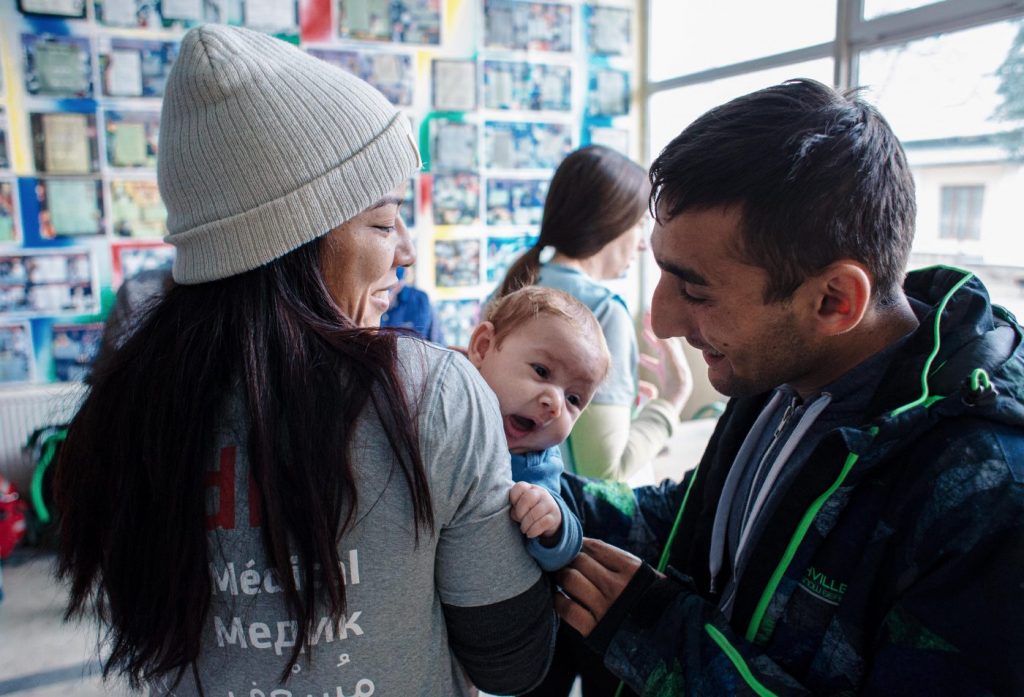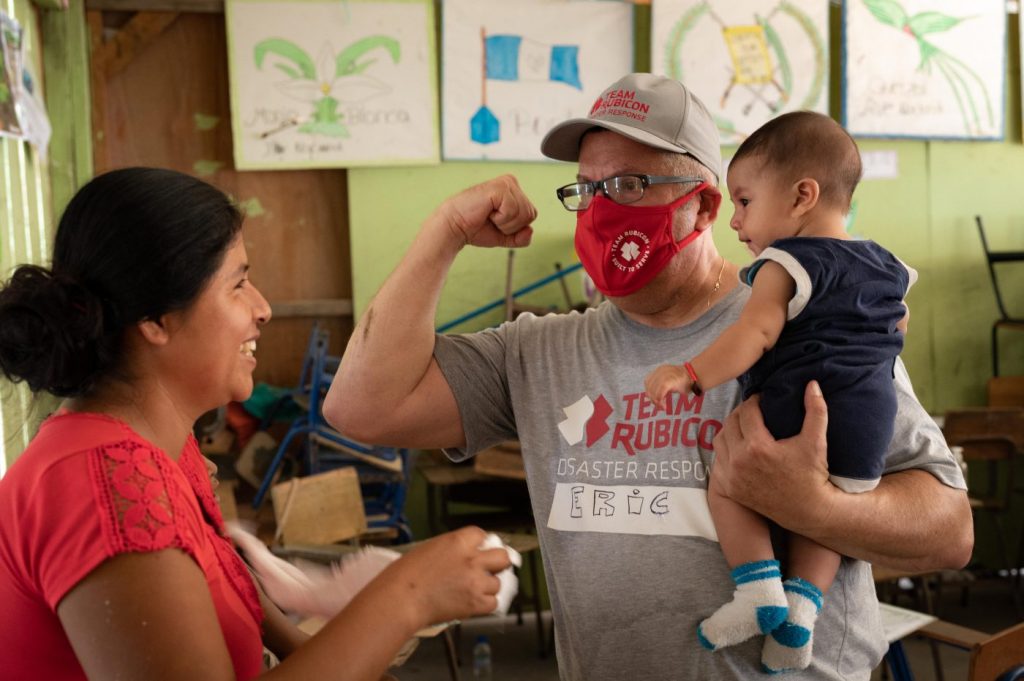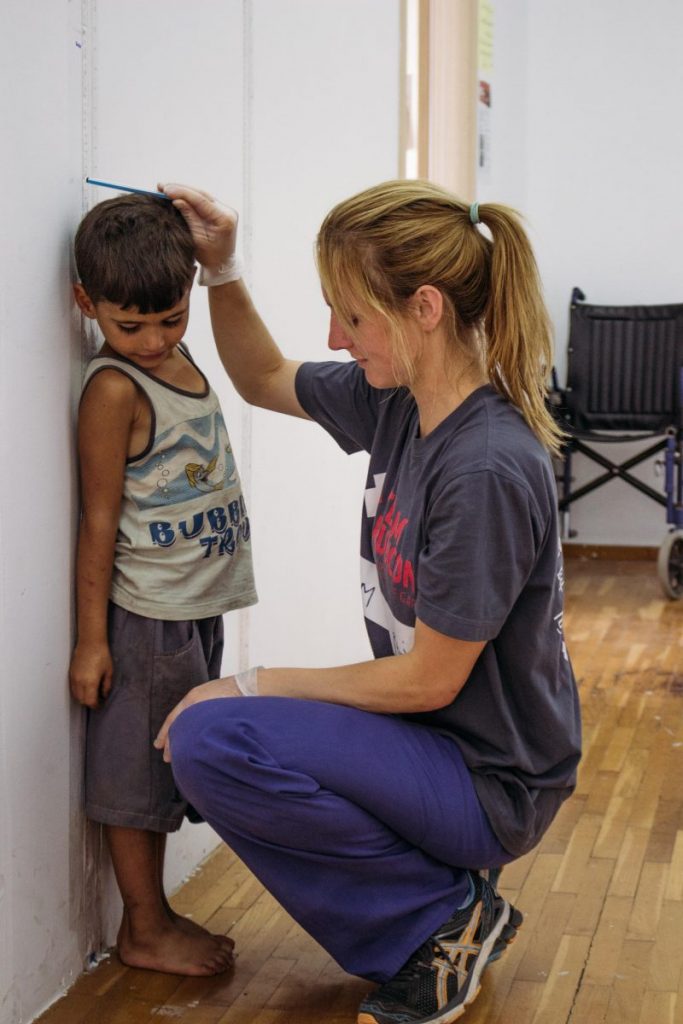What is a Humanitarian?
Understanding humanitarianism, humanitarians, and the four principles that drive them.
There’s a clear, and rising, need for humanitarian work worldwide. The U.N. Office for the Coordination of Humanitarian Affairs estimates that, in 2022 alone, 274 million people worldwide will need humanitarian assistance or protection. Whether, among other things, they are facing acute food insecurity, fleeing conflict, have been forcibly displaced, or are subject to extreme gender inequalities, those people, populations, and issues will need the assistance that humanitarian individuals and organizations can provide.
What is a Humanitarian?
At their cores, humanitarians seek to help people in need. They—we—have an innate drive to alleviate suffering, provide support equitably and without taking sides, and serve neighbors without ulterior motives.

At the most basic level, a humanitarian is someone who improves people’s lives and reduces suffering. Specifically, the U.N.’s Humanitarian Principles—humanity, impartiality, neutrality, and independence—should guide that effort. These are the guideposts for all of Team Rubicon’s global response efforts. Our volunteers are humanitarians to their cores, and our philosophies embody the U.N.’s guidance on what global citizens should do to help their neighbors in need.
A Brief History of Humanitarianism
Humanity, impartiality, neutrality, and independence bolster every humanitarian action undertaken by the U.N. But the U.N. didn’t create these principles—they’re a distillation of concepts found throughout humanitarian law and nongovernmental organizations’ codes and standards, such as the Code of Conduct for the International Red Cross and Red Crescent Movement and the Core Humanitarian Standard.
They are not, however, the only principles that the U.N. adheres to in their humanitarian efforts. The organization also emphasizes a rights-based approach that seeks to empower those impacted. It seeks to “do no harm,” or proactively prevent negative (unintended) impacts of aid. And, they focus on community-focused engagement efforts that center affected groups first and foremost.

Most importantly, the U.N.’s humanitarian efforts are meant to bolster individual countries’ efforts to protect their own citizens in the wake of violence, natural disasters, and conflicts.
Synthesizing all these principles, we can say that a humanitarian is a person who:
Seeks to support others during or after a crisis, whether it’s:
- A natural disaster
- Conflict (local/international)
- Violent or unsafe conditions
Takes a principled approach that centers the affected persons and communities
Creates a net positive impact and mitigate potential negative effects of aid
With this in mind, and to further understand what a humanitarian is, let’s break down the U.N.’s four guiding principles in more detail.
U.N. Principle #1: Humanity
Why do we pursue humanitarian work? What motivates us to help our neighbors domestically and abroad? According to the U.N., “The principal motivation of humanitarian action is to save lives and alleviate suffering in a manner that respects and restores personal dignity.”

Perhaps the sometimes-ambiguous urge to help others is rooted in our humanity—our innate motivation to protect human life, desire to alleviate suffering, and empathy towards people whose rights or dignity have been undermined.
At Team Rubicon, humanity drives everything we do. Ultimately, humanity is why we—Team Rubicon and humanitarians in general—respond to disasters the way that we do. We have an innate drive to help alleviate the suffering of others.
U.N. Principle #2: Impartiality
The U.N. emphasizes impartiality as one of its driving principles of humanitarianism:
“…humanitarian action is based solely on need, with priority given to the most urgent cases irrespective of race, nationality, gender, religious belief, political opinion, or class.”
This might seem like a given, but it bears repeating. Although gathering context is crucial to crisis response, humanitarians set ourselves apart by maintaining an impartial mindset throughout our involvement. We set aside personal proclivities and biases to support people.
At our core, Team Rubicon commits to serving people who need relief in times of emergency, regardless of race, religion, gender identity, sexual orientation, citizenship, or any other status.
During disasters or emergencies, we don’t turn away people who need help.
U.N. Principle #3: Neutrality
Neutrality is closely tied to impartiality. As the U.N. describes, “Humanitarian actors refrain from taking sides in hostilities or engaging in political, racial, religious, or ideological controversies.”
All four of the U.N.’s principles inform their concept of “principled humanitarianism,” where people commit to meeting the needs of disaster-stricken communities without seeking political influence, making efforts to impart their ideologies upon others, or bolstering one side or cause.
Team Rubicon responds to crises with the sole aim of supporting those in need—our Operations are completely apolitical.
U.N. Principle #4: Independence
The U.N. mandates that “Humanitarian actors are not to be subject to control or subordination by political, economic, military, or other non-humanitarian objectives.”
Like impartiality and neutrality, neutrality and independence are also closely tied. Neutrality describes how we should act while we’re on the ground helping communities in need—providing medical support, logistics, cleanup, or any other service.
Independence describes what our mindset should look like even before we deploy.
When volunteers serve with Team Rubicon, they’re supported by our organization and represent our mission. However, our institution only has one mission—helping neighbors domestically and worldwide. We strive to respond to crises that endanger or impact people, help communities recover from them, and rebuild resilience so they can heal on their terms.
Recognizing Humanitarians and Humanitarian Causes on World Humanitarian Day
Along with publishing operational guidelines for principled humanitarianism, the U.N. organizes World Humanitarian Day on August 19 each year. The event was created in memory of the 2003 Canal Hotel bomb attack in Iraq, which took the lives of 22 U.N. staff, among others.
To honor the memory of those lost, World Humanitarian Day seeks to advocate for:
- The dignity and survival of people impacted by disasters and crises
- The protection and safety of humanitarian workers worldwide
To that effect, each August 19th the U.N. encourages people to stand in solidarity with vulnerable communities around the globe, participate in a humanitarian project on a local or global scale, and learn more about aid work as a whole.
As humanitarians, we at Team Rubicon, are honored to celebrate World Humanitarian Day this, and every, year.
Team Rubicon combines the invaluable experience of veterans, first responders, and medical professionals to help communities in need. This World Humanitarian Day, and every year, consider learning more about global crises, joining our international team, or supporting our efforts from home.